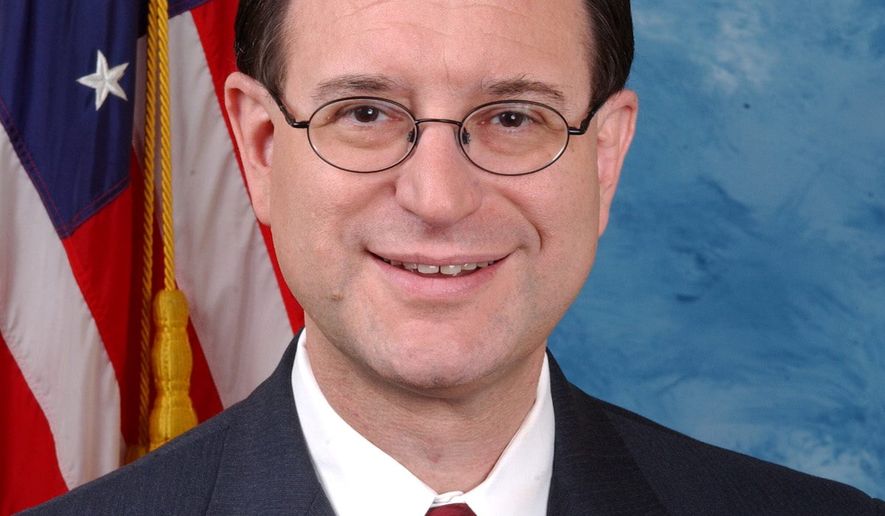A top Obama administration official says U.S. authorities are watching the relationship between Iran and North Korea “very carefully,” but have so far had difficulty verifying reports of “military missile nuclear engagement” between two rogue powers.
The comments from Deputy Secretary of State Antony Blinken came during a tense exchange with lawmakers Thursday on the question of whether the administration is doing enough to block potential weapons and technology transfers between Pyongyang and Tehran.
Mr. Blinken told lawmakers they were “right to raise the subject” during a House Foreign Affairs Committee hearing.
But he appeared less than eager to respond when a key panel Democrat suggested that Iran may be eager to buy nuclear weapons from North Korea in the wake of the nuclear accord that the Iranians reached last summer with the U.S. and other world powers.
The accord, which saw the Iranians cut their own nuclear program in exchange for sanctions relief from the West, is seen to have freed up significant financial resources for the government in Tehran.
The North Koreans “need money” and Iran now has significant cash from the sanctions relief “burning a hole in their pocket,” said Rep. Brad Sherman, California Democrat, who noted that North Korea previously sold technology to Syria for the “Al Kibar Syrian-Iranian nuclear weapons program that the Israelis bombed in 2007.”
The big question, according to Mr. Sherman, is whether U.S. officials are doing enough to prevent Iranian airplanes from moving materials directly between North Korea and Iran without stops in between, where such planes might be inspected by outside observers — namely the Chinese.
“Is the [Obama] administration working towards an understanding with China that an Iranian plane will not be allowed to fly to North Korea without stopping in China for fuel?” the California Democrat asked.
“With regard to Iran and North Korea, this is something we’re watching very carefully and you’re right to raise the subject,” said Mr. Blinken. “They’ve had a history of political engagement some of the reports of military missile nuclear engagement have been much harder to verify.”
The deputy secretary of state seemed poised to say more, but Mr. Sherman interrupted.
“Mr. Blinken are you denying the reports that the Al Kibar nuclear facility was North Korean technology?” he asked.
“I’m just saying that what we’re looking at is concrete evidence of relationships across the board, beyond the political,” responded Mr. Blinken. “What we’re focused on is exactly what you pointed to. I think you make a very important point.”
Mr. Sherman pressed further, asking again whether the Obama administration is “working to get China to say that they won’t allow the plane to go across [Chinese airspace] without stopping for fuel where it could be inspected?”
“All of the members of the United Nations are bound by the Security Council resolutions that say that there is to be no military ballistic or nuclear cooperation with the [North Korea],” responded Mr. Blinken. “As a result they have obligations.”
The answer seemed only to agitate Mr. Sherman.
“So the Iranian plane, if it went to North Korea, would be violating a U.N. resolution, but if it flew nonstop over China no one would know about it,” the lawmaker said. “You’re relying on Iran’s dedication to adhering to the U.N. resolutions?”
“We’re looking to every country involved to make good on its obligations,” said Mr. Blinken.
Mr. Sherman responded by continuing to push the matter.
“I urge you to talk to Beijing about making that plane land because if your sole defense for what I laid out is that the Iranians wouldn’t want to violate a U.N. resolution and they’d feel bad about violating international law, that is insufficient defense,” he said.
“If the Iranian plane going to North Korea does not stop in China, then it may not have a trade delegation on it, it may have cash going one way and nuclear weapons going the other way and that is a very specific issue,” Mr. Sherman said.
The exchange reflected what has recently become a growing concern among some lawmakers, intelligence officials and national security analyst over the prospect that Iran may “outsource” its nuclear program to Iran in the wake of last summer’s nuclear accord.
In September, CIA Director John Brennan acknowledged that his agency was monitoring whether Iran may seek assistance from another rogue state such as North Korea, perhaps by colluding with Pyongyang toward the secret purchase and transfer of nuclear weapons to Tehran.
Michael Pillsbury, who heads the Center for Chinese Strategy at the Hudson Institute in Washington, has expressed concern that China — upon which the Obama administration has heavily relied to help contain North Korea’s recent nuclear provocations — is turning a blind eye to illicit collaboration between Tehran and Pyongyang.
“My hope is China will denounce the North Korean proliferation of nuclear and missile technology to Iran,” Mr. Pillsbury told The Washington Times in early April. “China should not permit suspicious North Korean flights over Chinese territory to Iran. That would be a true test of China’s claims not to be a close ally of North Korea.”
• Guy Taylor can be reached at gtaylor@washingtontimes.com.




Please read our comment policy before commenting.